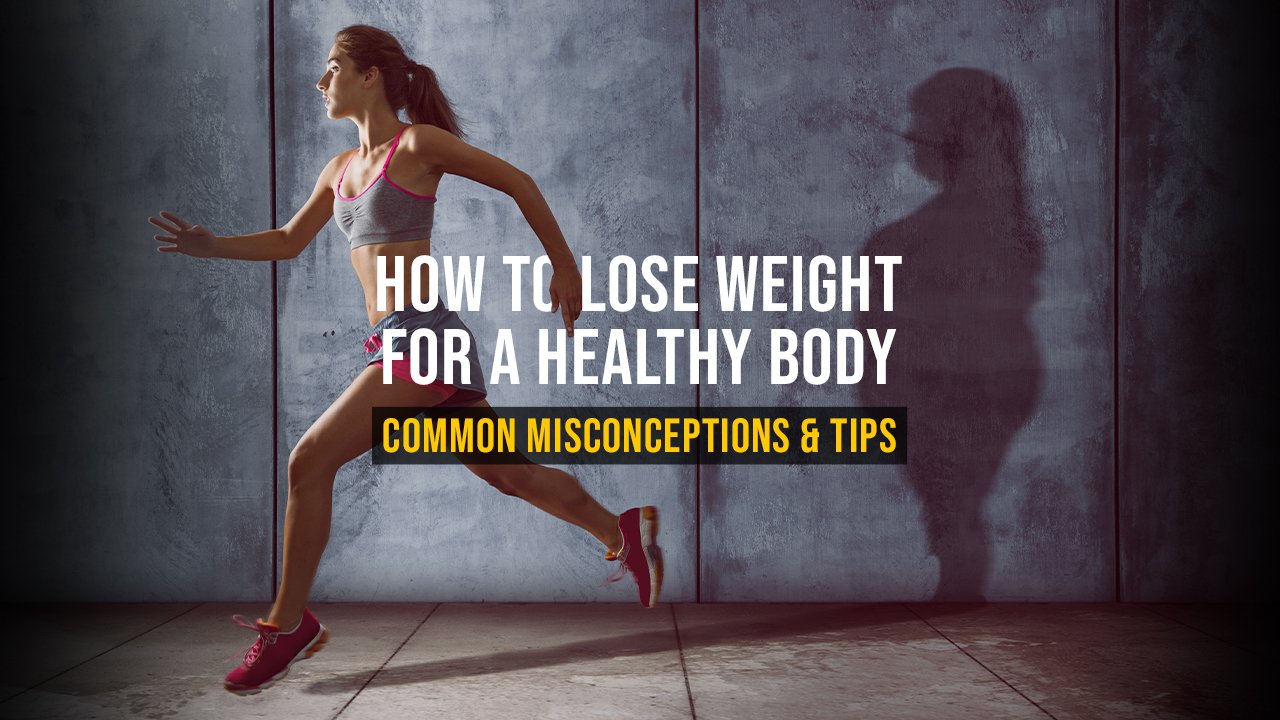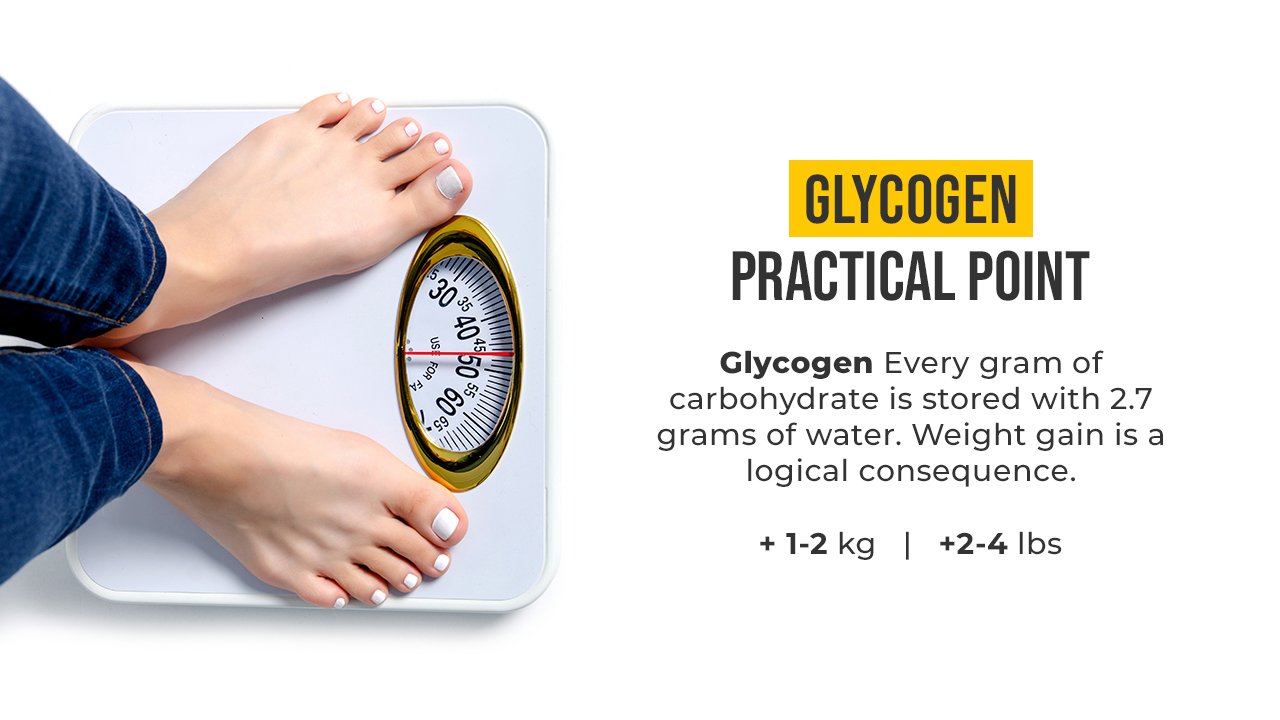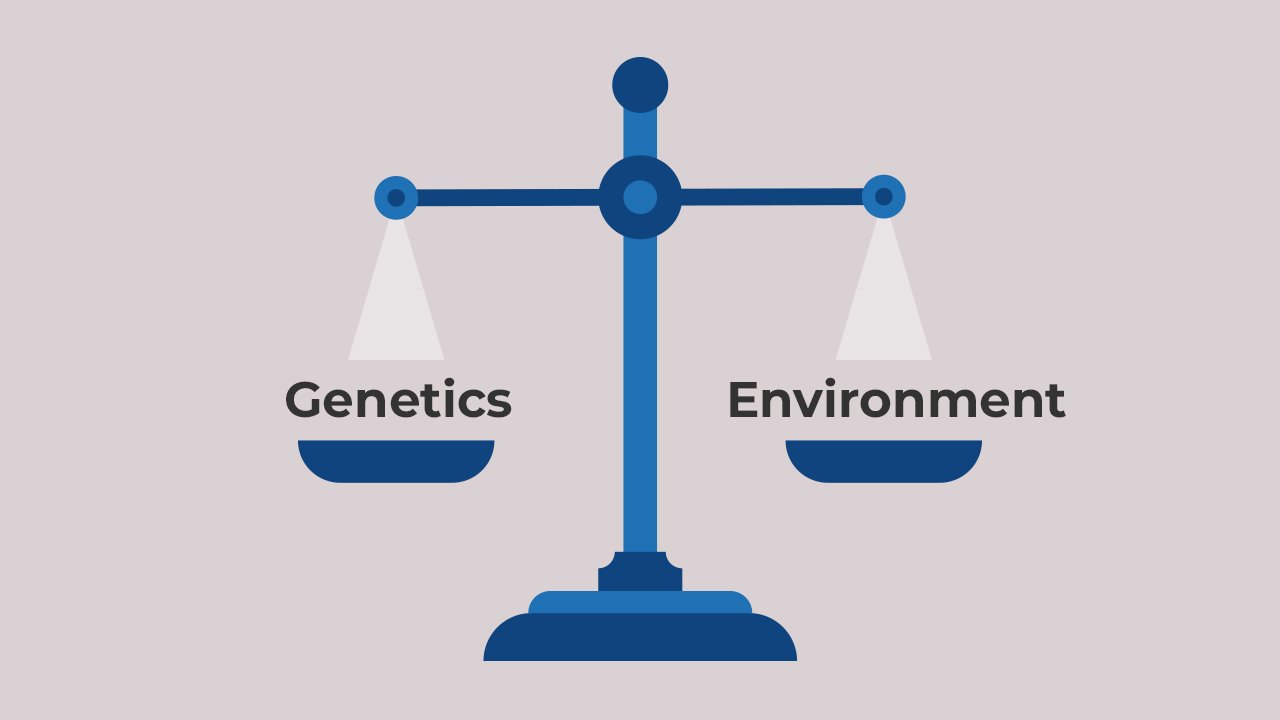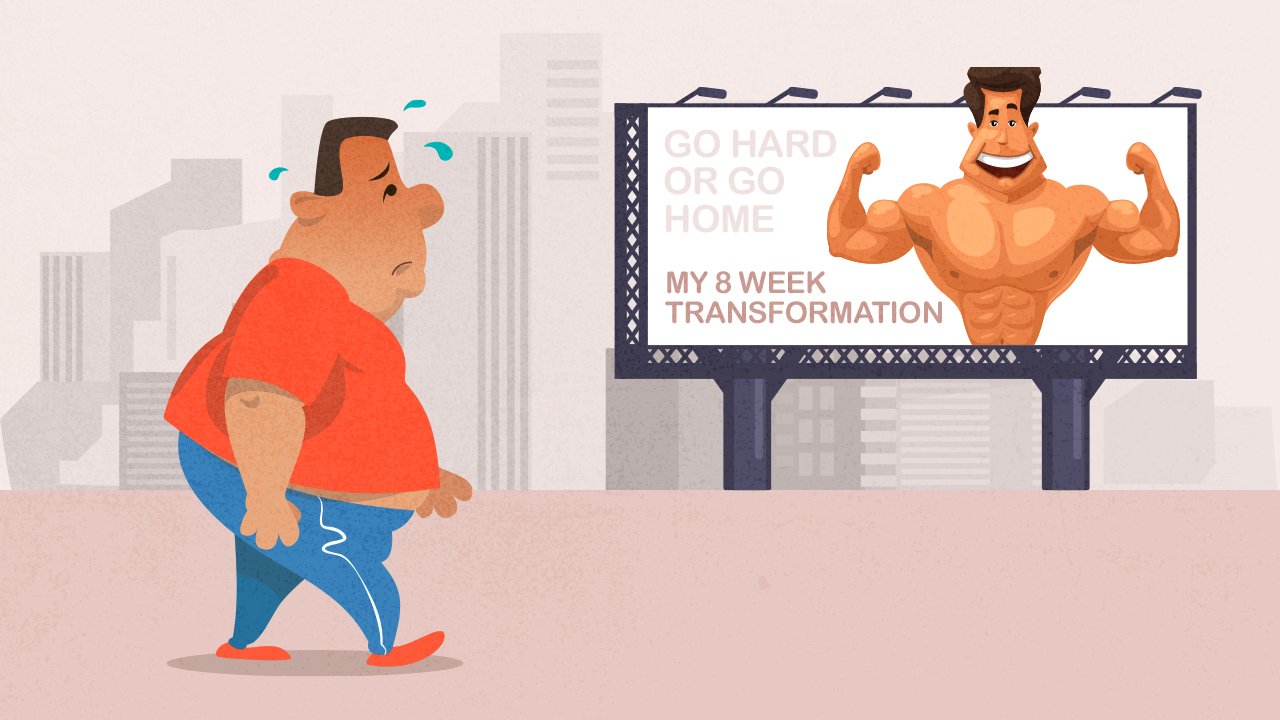Weight Loss Tips That Actually Work in Dubai
The global rise of weight-related disorders, particularly obesity, has made weight loss a top priority for many. In the Middle East, where lifestyle and dietary factors pose unique challenges, it's crucial to approach weight loss with evidence-based strategies, not just fleeting trends or opinions.
This blog post aims to debunk common weight loss misconceptions and equip you with ten practical tips that truly work. Understanding the science behind weight loss and adopting sustainable habits, you can achieve your health and fitness goals and improve your overall well-being.
So, let's examine the six most prevalent weight loss misconceptions to help you achieve a successful and healthy transformation.
-
The fitness industry is saturated with fad diets and quick-fix solutions that promise effortless weight loss. Unfortunately, these programs often lack scientific backing and can even be detrimental to your health. The truth is, there's no one-size-fits-all approach to weight loss. Sustainable results require a balanced diet, regular exercise, and a commitment to long-term lifestyle changes.
In the competitive fitness market, it's easy to get swept up in sensational claims and promises of rapid transformations. But remember, sustainable weight loss is a journey, not a destination. It's about making informed choices and adopting healthy habits that you can maintain for life.
-
The belief that obese individuals have an easier time losing weight than leaner individuals is a common misconception. The truth is, weight loss, regardless of the starting point, involves the same hormonal changes and challenges.
Whether you need to lose 5 or 50 kilograms, you'll experience similar fluctuations in cortisol levels, hunger cues, and leptin signaling. The primary difference lies in the duration and intensity of the journey. Those with more weight to lose will face a longer and potentially more challenging path, requiring consistent effort and unwavering willpower.
-
The notion that carbs are inherently fattening is simply not true. It's the excessive consumption of calories, regardless of their source, that leads to weight gain. Carbs play a vital role in providing energy and supporting various bodily functions.
The temporary weight fluctuations you might experience after consuming carbs are often due to water retention, not fat gain. Each gram of carbohydrate stores approximately 2.7 grams of water. So, when you reduce your carb intake, you might see a quick drop on the scale due to water loss. Conversely, reintroducing carbs can lead to a slight increase in weight as your body replenishes its glycogen stores.
Remember, sustainable weight loss is about finding a balance that works for you. Whether you choose a low-carb, moderate-carb, or high-carb approach, the key is to prioritize whole, unprocessed foods and maintain a calorie deficit.
-
The belief that genetics solely determine our weight is a common misconception. While genes undoubtedly play a role, our environment and lifestyle choices significantly impact our weight and overall health. The food we eat, our activity levels, and even our sleep patterns can all contribute to weight gain or loss.
The influence of our upbringing, particularly our family's eating habits and attitudes towards food, can shape our relationship with food and influence our weight throughout our lives. Parents play a crucial role in establishing healthy habits for their children, setting the stage for a lifetime of well-being.
However, it's important to remember that your genes are not your destiny. Even if you have a genetic predisposition to weight gain, you can still achieve a healthy weight through mindful choices and lifestyle modifications.
5. The Truth About Artificial Sweeteners and Weight Loss
The debate surrounding artificial sweeteners and their impact on weight loss is often polarized. One side advocates for their use as a safe and effective tool, while the other warns against potential weight gain and health risks. As usually is the case, the truth lies somewhere in the middle.
-
Artificial sweeteners are essentially calorie-free, so they don't directly contribute to weight gain. However, research indicates a correlation between higher consumption of artificial sweeteners and increased body weight. This paradox has led to much debate and speculation.
-
One possible explanation lies in how artificial sweeteners interact with our brain's reward pathways. Some studies suggest that these sweeteners can trigger cravings for sweet, calorie-dense foods, leading to overconsumption and potential weight gain.
-
While the research is ongoing, it's wise to approach artificial sweeteners with caution. They can be a useful tool for reducing calorie intake, especially when used occasionally and mindfully. However, relying on them excessively might not be the best long-term strategy for weight loss.
-
Limit your intake of artificial sweeteners and prioritize whole, unprocessed foods. If you enjoy diet sodas or artificially sweetened products, consume them in moderation and be mindful of their potential impact on your overall eating habits.
-
Several studies have explored the relationship between artificial sweeteners and weight gain. Here are a few notable examples:
Fueling the Obesity Epidemic? Artificially Sweetened Beverage Use and Long-term Weight Gain - Obesity, 2012.
Artificial sweetener use and one-year weight change among women - Preventive Medicine, 1986.
Patterns of weight change and their relation to diet in a cohort of healthy women - The American Journal of Clinical Nutrition, 1990.
Beverage consumption patterns in elementary school-aged children across a two-year period - Journal of the American College of Nutrition, 2005.
Total beverage consumption and beverage choices among children and adolescents - International Journal of Food Sciences and Nutrition, 2003.
These studies highlight the complex relationship between artificial sweeteners and weight management, emphasizing the need for further research and a balanced approach to their consumption.
-
It's common to see people jump headfirst into intense exercise routines when starting their weight loss journey. Suddenly going from a sedentary lifestyle to 10,000 daily steps and five weekly gym sessions might seem like the fastest way to achieve results. However, this "go hard or go home" approach often leads to burnout and frustration.
The problem is compounded when people combine excessive exercise with drastic calorie restriction. This combination can wreak havoc on your body, leading to overtraining, poor sleep, and disruptions in mitochondrial function and glucose tolerance – issues that can hinder weight loss and overall health.
While exercise is undoubtedly crucial for weight loss, a sustainable and balanced approach is key. Focus on gradually increasing your activity levels and prioritizing proper nutrition to fuel your workouts and support recovery.
Remember, consistency and smart choices, not extreme measures, will lead to long-term success on your weight loss journey.
-
In the age of social media, it's easy to fall into the trap of comparing yourself to fitness influencers and their seemingly effortless 8-10 week transformations. However, it's crucial to remember that these images often represent a carefully curated highlight reel, not the full picture. The fitness industry, driven by competition, often perpetuates these unrealistic expectations by promoting quick fixes and dramatic transformations.
The reality is that sustainable weight loss takes time, dedication, and consistency. It's about making gradual progress and building healthy habits, not chasing unrealistic expectations. Comparing yourself to others can lead to frustration and discouragement, hindering your own journey.
I am here to help you burn fat and make your journey sustainable and health-conscious. Looking at some natural, photoshopped transformations online can help you get some motivation but will more often make you feel like you do not stand a chance compared to those guys and will put the pressure to achieve something unrealistic.
Scientifically, we know that the most effective weight loss rate is about 0.5 to 1 kilogram a week. Also, science shows that the pace at which we put on muscle is extremely slow. For most beginners, if training and nutrition are optimal, the rate of putting on muscle is just around 0.25 to 0.75 kilograms a month.
Now we know that we can assume with much confidence that pics we see online of a 40-year-old man that replaced 10 kilograms of muscle with fat in a matter of 10 weeks are not real.
Unfortunately, the fitness industry is very competitive, and we cater to humans that want results FAST! However, it is my duty not to get lost on this road to make a living and maintain as much integrity as possible to help you achieve your goals and live an optimal life.
Instead, focus on your own progress and celebrate your achievements, no matter how small. Remember, every step forward is a victory. By setting realistic goals and embracing a sustainable approach, you'll set yourself up for long-term success and a healthier, happier you.
-
If you're solely focused on the number on the scale, you're missing the bigger picture of your fitness journey. In my experience helping hundreds of clients achieve their body transformation goals, I've learned that the scale can be misleading. It doesn't differentiate between fat loss and muscle gain, and it can fluctuate due to factors like water retention and hormonal changes.
Instead of obsessing over the scale, focus on these more meaningful indicators of progress:
How you feel:
Are you feeling more energized, stronger, and confident?
How you sleep:
Are you getting quality sleep and waking up feeling refreshed?
Strength gains:
Are you able to lift heavier weights or perform more reps?
Body composition changes:
Do you notice a difference in how your clothes fit or how you look in the mirror?
These factors provide a more holistic view of your progress and reflect the positive changes happening within your body, even if the scale doesn't always show it.
Remember: True transformation goes beyond just weight loss. It's about building a stronger, healthier, and more confident you.
-
The connection between sleep and weight loss is often underestimated. Research shows that insufficient sleep can disrupt hormones, increase appetite, and hinder your weight loss efforts. In fact, women who sleep less than six hours per night are more likely to gain weight, and the risk of obesity increases with shorter sleep duration.
The science behind this is clear, but it's also something many of us experience firsthand. After a poor night's sleep, we're more likely to crave unhealthy, processed foods and less likely to make mindful choices. Lack of sleep also elevates cortisol levels, a stress hormone that can contribute to weight gain and hinder muscle growth and recovery.
Prioritizing quality sleep is essential for achieving your weight loss goals. Aim for 7-9 hours of restful sleep each night to support your body's natural processes and optimize your metabolism.
Here are some simple tips to improve your sleep quality:
Daily sun exposure:
Sunlight helps regulate your natural sleep-wake cycle.
Limit blue light exposure at night:
The blue light emitted from electronic devices can interfere with sleep. Avoid screens at least an hour before bed.
Have a productive day:
Physical activity and mental engagement can contribute to better sleep.
No caffeine after midday:
Caffeine can stay in your system for hours, affecting your ability to fall asleep.
Complex, low-sugar carbs with dinner:
A small portion of complex carbohydrates can promote relaxation and improve sleep quality.
Keep your bedroom cool:
A cool, comfortable environment is conducive to restful sleep.
Read a book before bed:
Reading can help you unwind and prepare for sleep.
By prioritizing sleep and implementing these simple tips, you'll create a more conducive environment for weight loss and overall well-being.
-
The impact of daily activity on weight loss is often underestimated. You don't need a gym membership to shed those extra pounds; staying active throughout the day can make a significant difference. That's where the power of walking comes in.
Incorporating 3-4 brisk 10-15 minute walks into your daily routine can help you:
Boost your calorie burn:
Walking is a simple yet effective way to increase your daily energy expenditure, contributing to a calorie deficit that promotes weight loss.
Improve digestion:
Walking after meals aids digestion and can help prevent bloating and discomfort.
Increase productivity:
Physical activity has been shown to enhance focus and mental clarity, leading to a more productive day.
Remember, physical activity comes in many forms. Don't limit yourself to just gym workouts. Embrace the opportunities for movement in your daily life, whether it's taking the stairs, walking to nearby errands, or enjoying a stroll in the park. Every step counts towards a healthier, happier you.
-
The foundation of successful weight loss lies in nourishing your body with the right foods. By prioritizing nutrient-dense, whole foods and understanding their impact on your body, you can achieve your goals while feeling energized and satisfied.
Here are three key areas to focus on:
Embrace Whole Foods:
Opt for foods that are as close to their natural state as possible, such as fruits, vegetables, lean proteins, and whole grains. These foods are packed with essential nutrients and fiber, promoting satiety and overall health.
Prioritize Protein:
Protein is a powerful ally in your weight loss journey. It keeps you feeling full and satisfied, helps preserve muscle mass, and even boosts your metabolism due to its thermic effect. Aim to include a source of protein in every meal and snack.
Increase Fiber Intake:
Fiber-rich foods like vegetables, fruits, beans, and oats are essential for weight management. They promote gut health, regulate digestion, and help you feel fuller for longer, reducing cravings and overeating.
By incorporating these dietary principles into your lifestyle, you'll create a sustainable foundation for weight loss and overall well-being. Remember, it's not about deprivation but about making informed choices that nourish your body and support your goals.
-
The journey to weight loss and a healthier lifestyle can be challenging, especially when faced alone. Research shows that having someone to hold you accountable significantly increases your chances of success. A personal trainer can provide that support, offering expert guidance, motivation, and a structured plan to help you achieve your goals.
But we understand that personal training might not be accessible to everyone. If budget constraints are a concern, consider enlisting the support of a friend or family member. Share your goals with them and let them be your cheerleader and accountability partner.
Remember, there are various options available in the fitness industry, including online coaching and group training programs. At Fortius Dubai, we offer a range of services to suit different needs and budgets.
Don't let anything hold you back from achieving your best self. Explore our personal training and online coaching options today!
-
Finding an exercise routine you genuinely enjoy is crucial for long-term adherence. If you dread your workouts, it's unlikely you'll stick with them consistently. However, it's also important to recognize that not all enjoyable activities are equally effective for weight loss.
For instance, playing football with your friends might be a fun social activity, but it might not be the most efficient way to shed those extra pounds and achieve a beach-ready physique. While there's nothing wrong with incorporating enjoyable activities into your routine, it's essential to prioritize exercises that directly contribute to your weight loss goals.
The key is to find a balance between enjoyment and effectiveness. Choose activities that you find fun and engaging, but also ensure they provide a sufficient challenge to promote calorie burning and fat loss.
Once you've established a solid foundation of fitness and achieved your weight loss goals, you can certainly incorporate more recreational activities into your routine. But in the initial stages, prioritize exercises that will deliver the results you desire.
-
In Dubai's vibrant culinary scene, resisting the temptation to eat out can be tough. However, restaurant meals often hide excess calories in the form of added sugars, oils, and larger portion sizes. Even seemingly "healthy" dishes can be surprisingly calorie-dense.
Meal prepping is a powerful tool for weight loss success. By preparing your meals in advance, you control the ingredients and portions, ensuring you're fueling your body with nutritious food that aligns with your goals. If meal prepping seems daunting, consider joining a reputable meal prep service in Dubai that caters to healthy eating.
While it's okay to enjoy dining out occasionally, aim to limit it to weekends or special occasions. When you do eat out, be mindful of your choices and prioritize dishes that are grilled, baked, or steamed over fried or heavily sauced options.
-
Weight loss isn't just about shedding pounds; it's also about building character and developing the mental fortitude to make healthier choices. It's an opportunity to demonstrate self-control and prove to yourself that you can overcome temptations.
Here are a few examples of how saying "no" can empower you on your weight loss journey:
Alcohol:
If you're accustomed to enjoying a few drinks per week, consider taking a break during your transformation program. This demonstrates your commitment to your goals and allows your body to focus on optimizing its processes for fat burning and muscle building.
Sugary Drinks: I
f you can't imagine a week without soda or other sugary beverages, challenge yourself to eliminate them for a set period. This act of willpower can be incredibly empowering and show you that you have the strength to resist unhealthy cravings.
Sweet Treats:
If you have a sweet tooth, try cutting out desserts during the week. This small sacrifice can lead to significant results and build the mental resilience needed for long-term success.
Remember, these choices might not be the sole determinants of achieving your goals, but they play a crucial role in developing discipline and self-control. By saying "no" to temptations, you're not only improving your physical health but also strengthening your mental resolve and building a foundation for lasting change.
-
In today's fast-paced world, the desire for quick fixes and instant results is prevalent. The allure of fad diets and 8-week transformation programs is strong, promising rapid weight loss and a dream physique in a short period. However, it's crucial to remember that sustainable weight loss is a marathon, not a sprint. The unhealthy habits and lifestyle choices that contribute to weight gain often develop over years, even decades. Attempting to reverse this damage in a matter of weeks is unrealistic and can lead to frustration and disappointment.
The truth is, achieving and maintaining a healthy weight requires a long-term commitment to healthy habits. It's about making sustainable changes to your diet, exercise routine, and overall lifestyle. While rapid weight loss might be possible in some cases, it's often not sustainable and can negatively impact your health.
By embracing a patient and consistent approach, you'll set yourself up for long-term success. Focus on building healthy habits, making gradual progress, and celebrating your achievements along the way. Remember, the journey to a healthier you is a marathon, not a sprint.
Your Journey to a Healthier You Starts Today
This article explored common weight loss misconceptions and provided 10 actionable tips to guide you to a healthier body. Remember, sustainable weight loss is about consistency in your diet and exercise routine. Find activities you enjoy and incorporate them into your lifestyle, ensuring they align with your goals.
When embarking on your weight loss journey, it's crucial to approach it with patience and a focus on long-term success. Steer clear of fad diets and instant solutions, and instead, adopt a balanced and sustainable approach that nurtures both your body and mind.
The principles remain the same Whether you aim to lose 5 or 50 pounds. It's about making informed choices, staying consistent, and celebrating your progress.
Ready to take the next step? Dive into our blog for a wealth of detailed articles on fitness, nutrition, and weight loss tailored for the Middle East. Or, if you're ready for personalized guidance and support, consider our expert personal training and online coaching services.
Remember, at Fortius Dubai, we're here to empower you to achieve your health and fitness goals.
Learn More with Dubai’s Leading Fitness and Wellness Blog:
Find out more about our services:
#StayStrong #BeFortius













